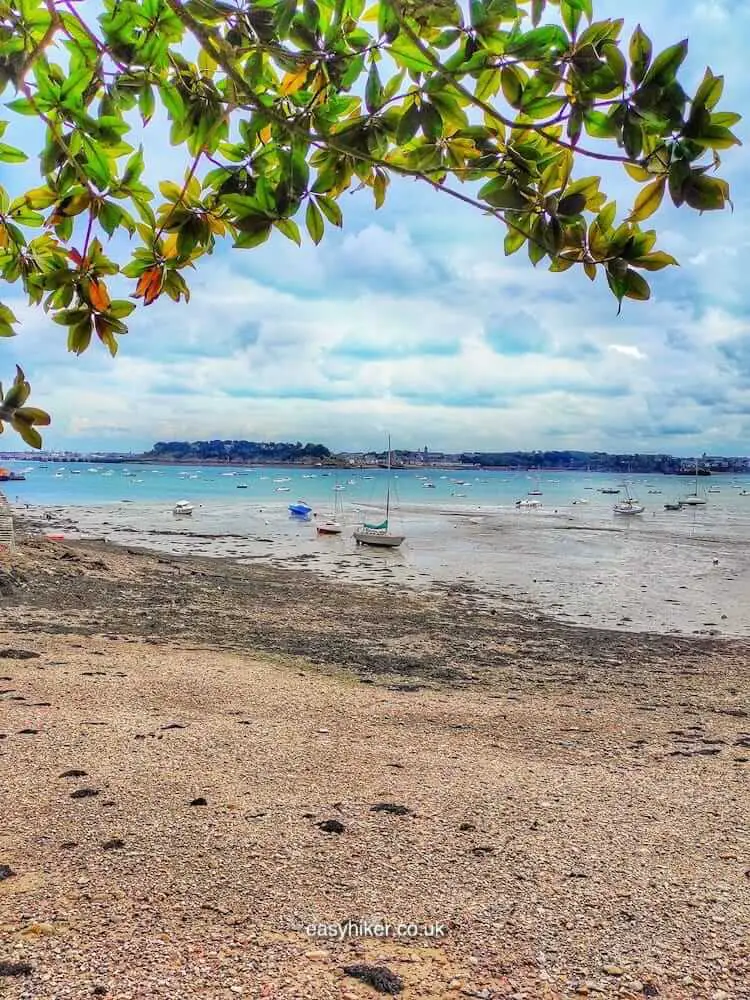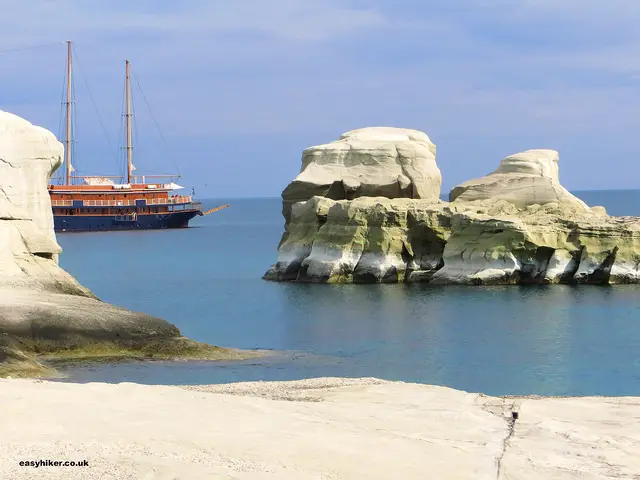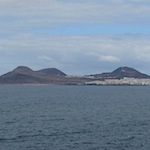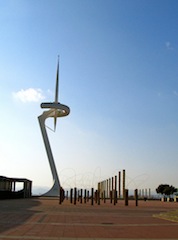A few years ago, French hikers were asked to name their favourite hiking trail in the country, and it was the great Brittany stretch of the nationwide coastal path that received the largest number of votes.

I don’t know whether this vote was a one-off or whether it is conducted every year or so, and I do not care (or dare) to look – for fear of disappointment that, since then, another trail won.
Because, you see, we, too, fell in love with the great Brittany section of the Chemin des Douaniers, which was originally created 200 years ago so that the French customs officials could keep the coast under close surveillance but which has since become one of the country’s most charming visitor attractions.

We only sampled a couple of the trail’s short stages. Sampling is all you can do, after all, because the GR34 (hikers’ shorthand for the Brittany stretch of the Chemin) extends over a total length of more than 2000 km. This, to put things into perspective, is the distance between Brittany and North Africa if you travel in a straight line.
The Brittany coast, however, does not do straight lines, only tight curves and sharp zigzags around large peninsulas that have smaller peninsulas attached to them. The whole thing looks as if it had been designed by Professor Mandelbrot to illustrate the principles of his fractal geometry.
What this means in practice is that you can walk around one of the larger peninsulas for 10 km only to arrive a few hundred metres from where you started the loop.
But hey, who ever got into hiking as a means to get from A to B?
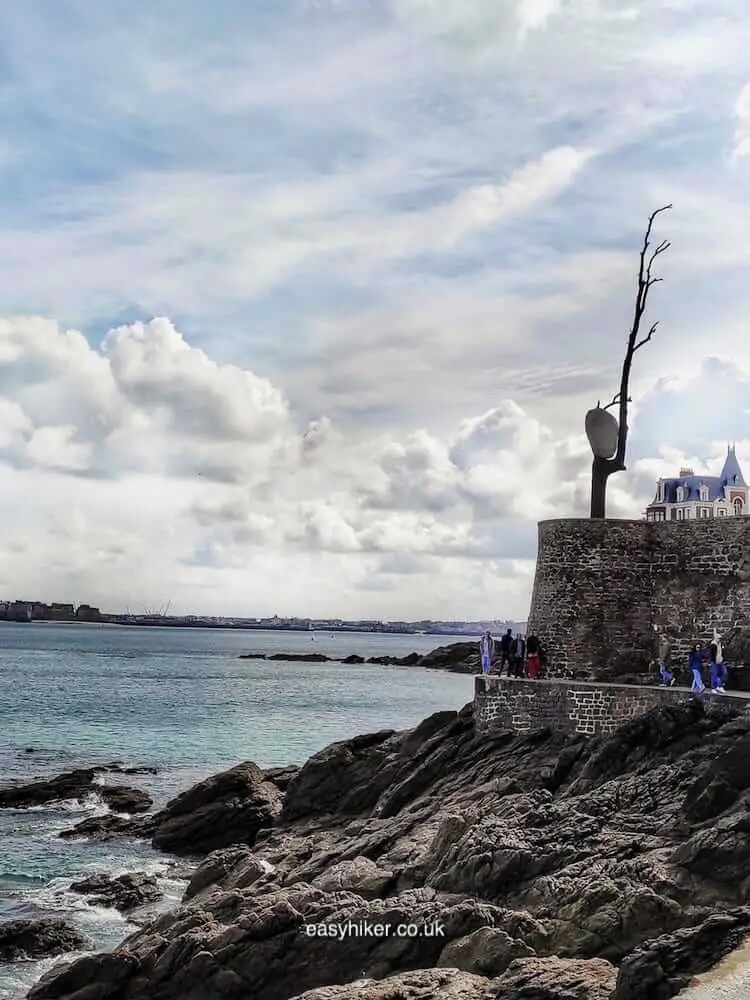
Here are the three main reasons why we fell in love with the GR34.
1. The trail always hugs the coastline
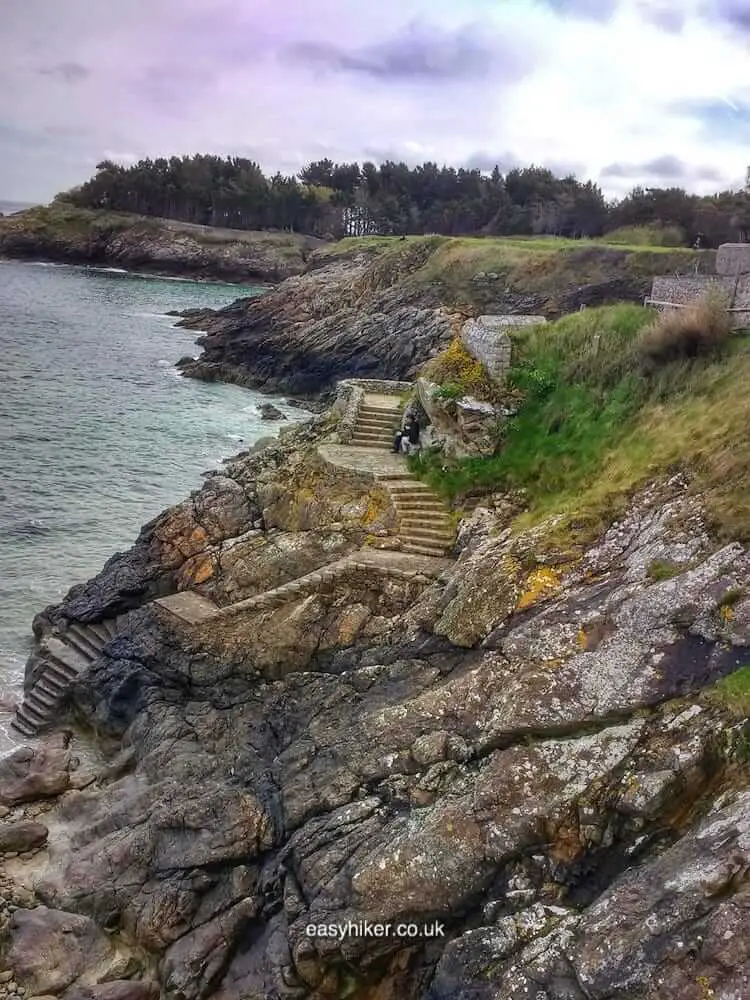
Only once during our hike did we find the view of the sea blocked by a row of buildings, and that was only for a little more than 100 metres.
On the other hand, we passed the back gardens of a new and fancy hotel development in sufficiently close distance that we could observe the guests lounging around the spa area in their bathing gowns.
I am certain the owners of the facility would have loved to extend the grounds up to and including the coast, but it seems no such permission was granted. (Many years ago, our son and I hiked the Chemin des Douaniers near Toulon in the south of the country. That was a very different experience, with hikers being constantly diverted into suburban streets to shield home owners and holiday guests from the prying eyes of passers-by.)
So if you are searching for a coastal trail that allows you to feel the spray of the sea in your face and on your lips – plus, occasionally, on your feet – great Brittany is the right place for you.
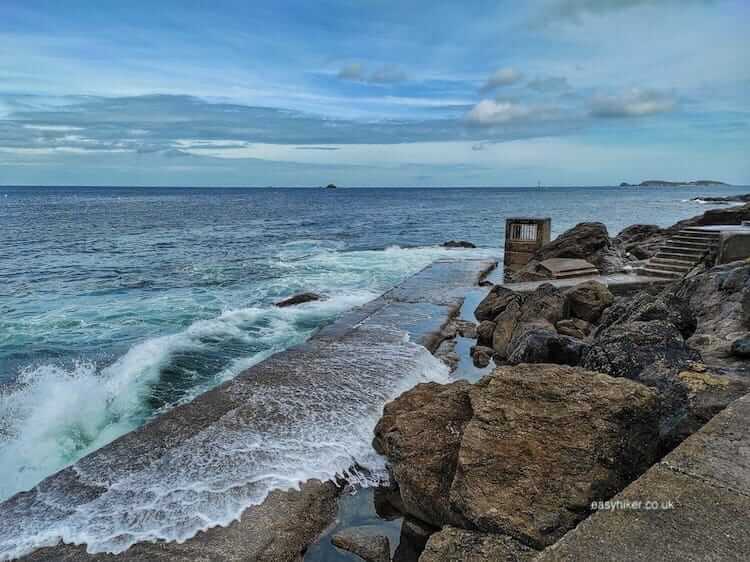
2. The variety of the landscape
After every twist around one of the small peninsulas, a new vista opens up. Sometimes this may be a variety of what you have just seen, but quite frequently, you will be surprised at how quickly the scenery can change.
The Brittany coast has many different registers: there is drama, …
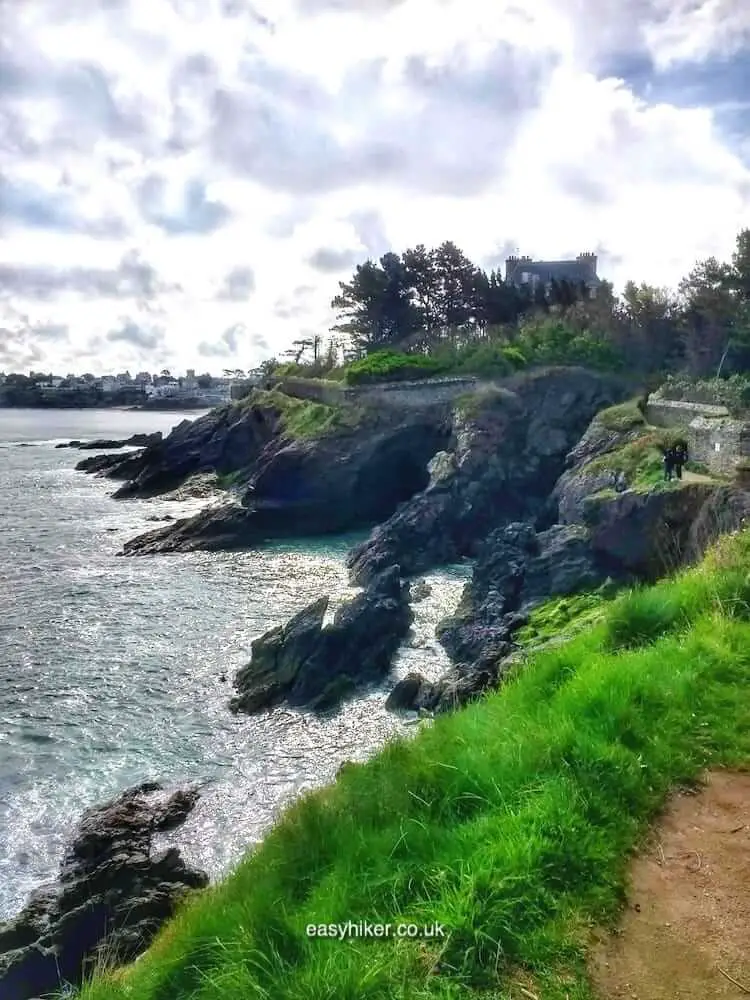
… but also a good deal of lyricism …
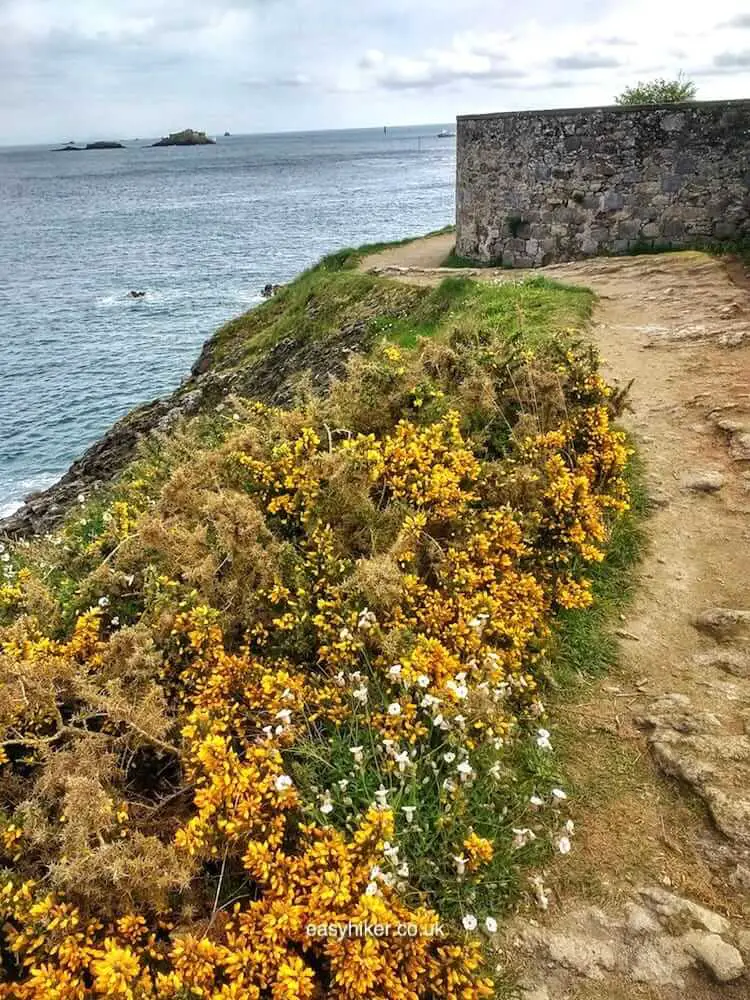
… and room for the picturesque, sometimes literally so.
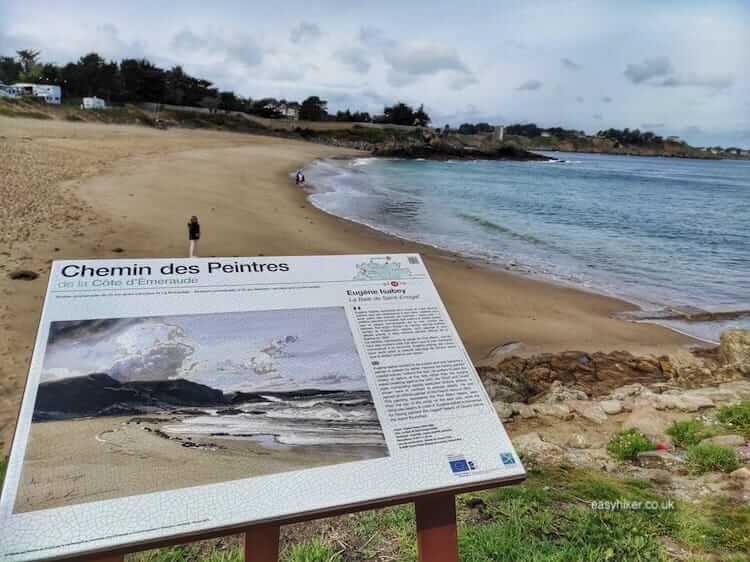
And in between, you can follow one the frequent invitations to sit down for a moment of quiet contemplation.
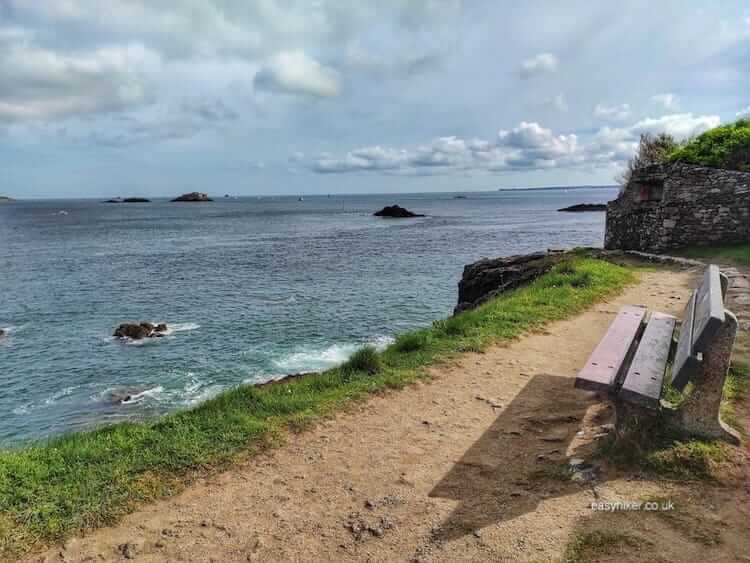
3. Brittany’s coastal path is easy hiking in every way
There is nothing along the way that a small child could not do – or an old man.
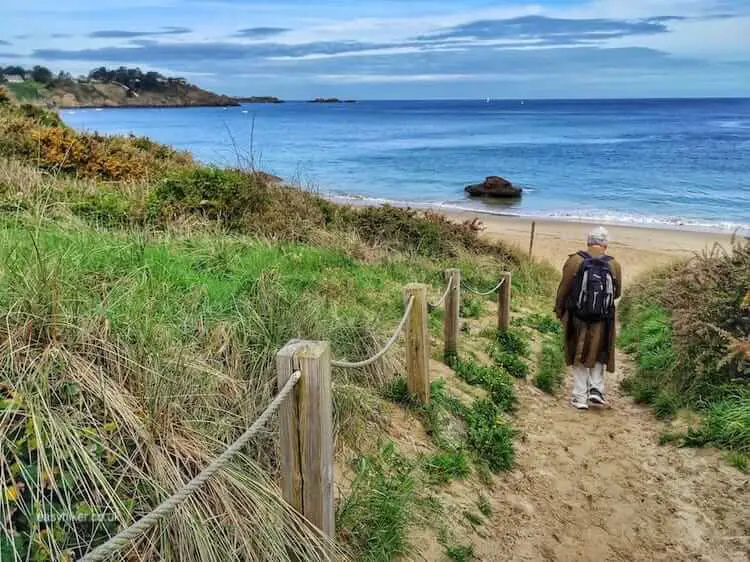
And it helps that the path is well marked throughout. “Reassurance markers” appear every 200 metres or so, even in places where you would not expect to find any.

At which point I must add an important qualification. The GR34 is usually sub-divided into six sections – each with a length of approx. 300 km – and we can only speak with any degree of confidence about the Cote d’Emeraude section in the northeast of the region.
For today’s walk, we took a bus to La Fourberie (line no. 16 with stops in both Saint Malo and Dinard) and joined the trail after a short walk to the beach (approx. 200 metres on your right hand side when you leave the bus).
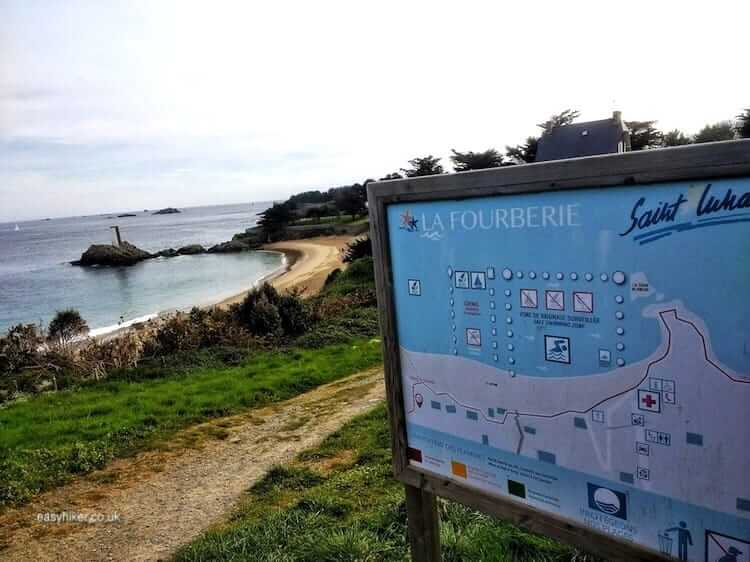
From there, the trail continues down the coast into the outskirts of Dinard where there is much architectural grandeur on show. (In the late 19th and early 20th century, Dinard was one of the most elegant seaside resorts in the entire country.)
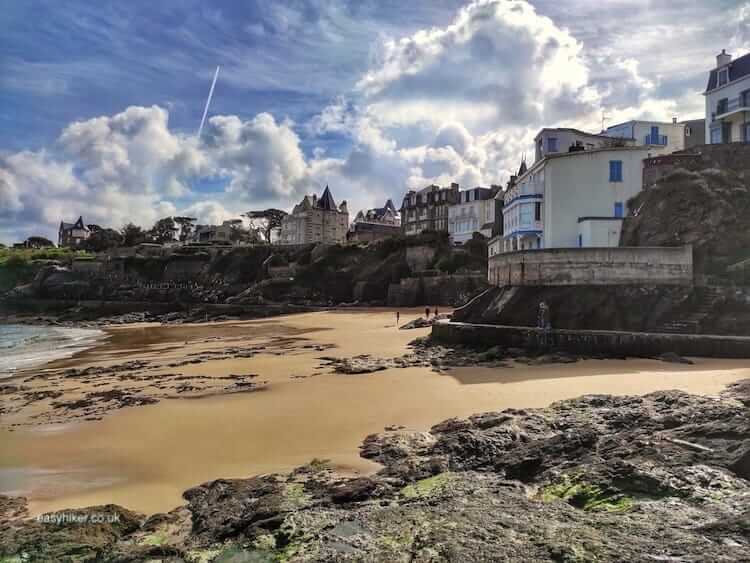
If you leave early, you will have time to lunch in Dinard and before strolling down the town’s Moonlight Promenade, the Promenade du Clair de Lune, for a seaside walk with a completely different flavour.
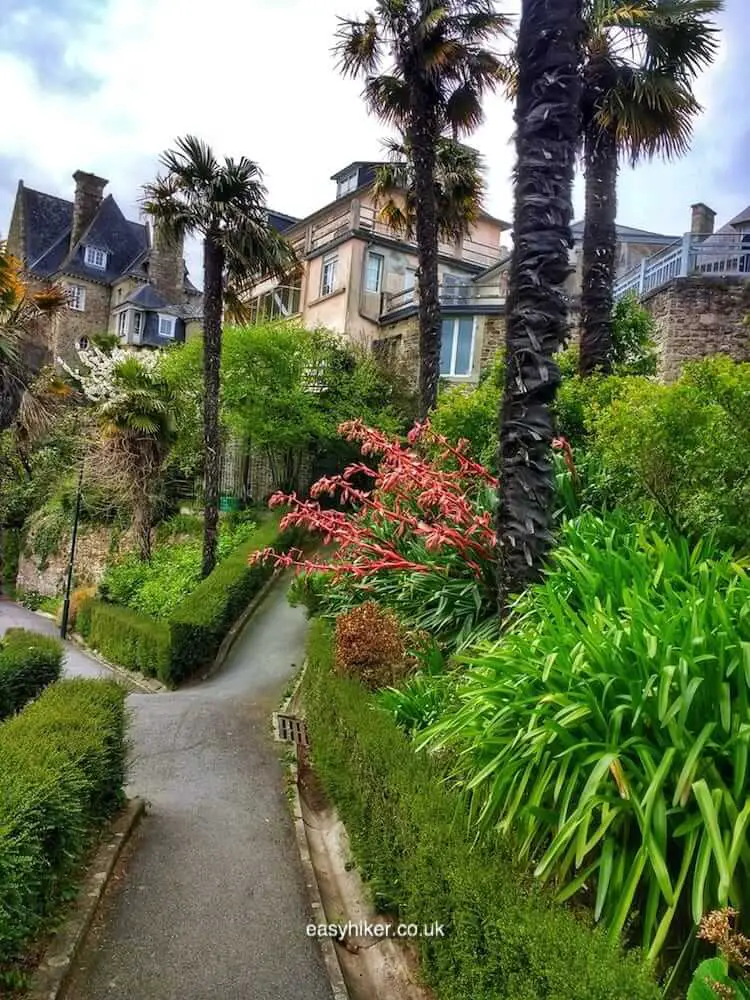
If you are based in Dinard, you are now at home – but if, like us, you have rented your accommodation in Saint Malo, the area’s other main town, you can return by ferry instead of taking the bus (you will find the ferry port at the very top of the Promenade) to round off your day-out by remaining faithful to its maritime theme.
In the event, that is, that you have not had enough of the sea – but who can say they ever have?
